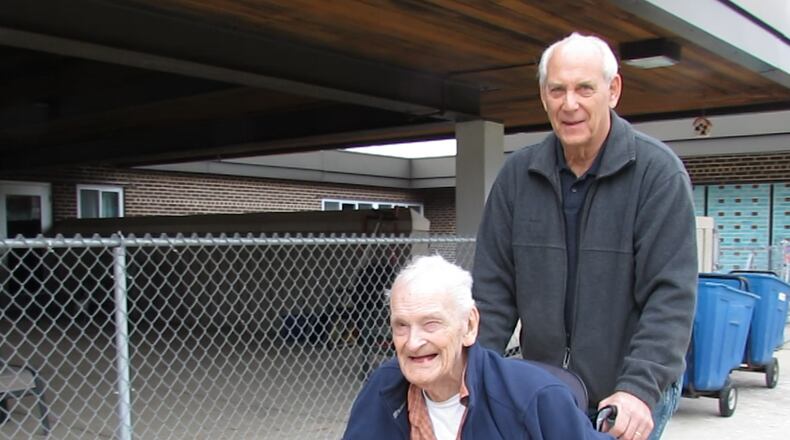March is Developmental Disabilities Awareness Month.
Developmental Disabilities of Clark County serves roughly 1,400 residents, according to community support supervisor Melissa Baker. The board funds and supports the F.F. Mueller Residential Center, adult services, in-home early intervention programs for children, transportation in specialized vehicles, family resources, respite care, vocational training, plus training and assistance to providers of developmental disabilities services, like home care agencies and independent providers.
Shannon Chatfield, the director of Early Childhood at Developmental Disabilities of Clark County, said last year, her department saw more than 500 children below the age of 6.
Chatfield said her department sees many referrals for service following the holidays, a trend she expects to be exacerbated by the pandemic. She pointed to the lack of opportunities for social interaction during a time of physical distancing, as well as an influx of babies born over the past two years.
“I think that is probably going to be in the forefront, because they haven’t been out and accessing and seeing,” she said.
Opportunities for face-to-face socialization for adults with developmental disabilities, too, were impacted.
Chatfield said that her department saw some positive consequences from the pandemic, however: for example, the department had to pivot to new ways to connect to people with developmental disabilities.
Her staff, unable to enter into most area homes, learned how to video call families to guide parents through care of their children. Chatfield said her staff saw this empower families more, as the training became parent-driven.
“It’s given them so much more confidence,” she said. “That’s one thing COVID gave us: education and learning and growth.”
Similarly, board employees met with adult individuals with developmental disabilities safely, via video calls, frequent phone calls, and physically distanced meetings in outdoor spaces or talking to people through their screen doors.
“Even though it’s through a screen, we’re still here, we see you, we’re engaging,” she said.
Chatfield said the Board purchased several folding chairs to bring with them to meet with families and individuals at parks, too.
“They know that they can count on us,” she said. “You’re working with people you love and care about.”
Individuals with developmental disabilities were among the first to be eligible for COVID-19 vaccines, and Chatfield said that board employees worked with individuals to inform them on the impacts of COVID-19. Developmental Disabilities of Clark County worked with the Clark County Combined Health District to schedule appointments for people who wished to get vaccinated, Chatfield said.
The board said that the annual campaign seeks to raise awareness about the inclusion of people with DD in all areas of community life, as well as awareness of the barriers that people with disabilities still sometimes face in connecting within the communities in which they live.
“Developmental Disabilities of Clark County is committed to helping people reach their full potential through meaningful connections, but we need our community’s help to make lasting progress,” said Will Bagnola, the superintendent of Developmental Disabilities of Clark County.
In recognition of Developmental Disabilities Awareness Month, Developmental Disabilities of Clark County is participating in or hosting a variety of events. Banners featuring local individuals will fly in Springfield, New Carlisle, and Enon for the month. Local governments have also made proclamations acknowledging the awareness month.
Finally, Clark DD is also donating books about inclusion, “It’s OK to be Different” by Sharon Purtill to all the 1st-grade classes in Clark County schools.
“Everyone benefits when we welcome people with disabilities as equals in our neighborhoods, at work, and at social events,” said Bagnola. “We must learn to look past the differences we all have, and focus on the humanity that we share.”
The local Board of DD shared several ways that the community can be more inclusive. To start, Developmental Disabilities of Clark County urges people to learn more about people with disabilities through movies and books that share their experiences.
Being mindful of language is another step people can take, the board said, particularly by using “People First Language (PFL).” PFL uses phrases such as “person with a disability,” “individuals with disabilities,” and “children with disabilities,” as opposed to phrases that identify people based solely on their disability, such as “the disabled.”
“They need to be heard and seen and included and loved,” Chatfield said. “Just like everyone else.”
About the Author


